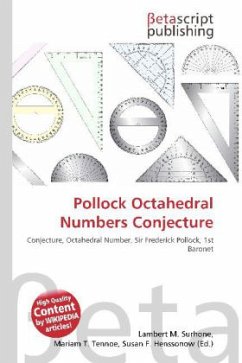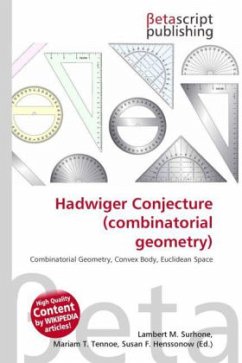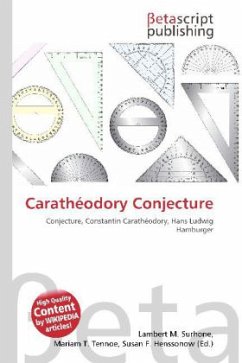
Pollock Octahedral Numbers Conjecture
Versandkostenfrei!
Versandfertig in 6-10 Tagen
26,99 €
inkl. MwSt.

PAYBACK Punkte
13 °P sammeln!
Please note that the content of this book primarily consists of articles available from Wikipedia or other free sources online. The Pollock octahedral numbers conjecture is a conjecture that every integer is the sum of at most seven octahedral numbers, first stated by Sir Frederick Pollock, better known as a lawyer and politician but also a contributor of papers on mathematics to the Royal Society. A conjecture is a proposition that is unproven but appears correct and has not been disproven. Karl Popper pioneered the use of the term "conjecture" in scientific philosophy. Conjecture is contrast...
Please note that the content of this book primarily consists of articles available from Wikipedia or other free sources online. The Pollock octahedral numbers conjecture is a conjecture that every integer is the sum of at most seven octahedral numbers, first stated by Sir Frederick Pollock, better known as a lawyer and politician but also a contributor of papers on mathematics to the Royal Society. A conjecture is a proposition that is unproven but appears correct and has not been disproven. Karl Popper pioneered the use of the term "conjecture" in scientific philosophy. Conjecture is contrasted by hypothesis (hence theory, axiom, principle), which is a testable statement based on accepted grounds. In mathematics, a conjecture is an unproven proposition or theorem that appears correct.












